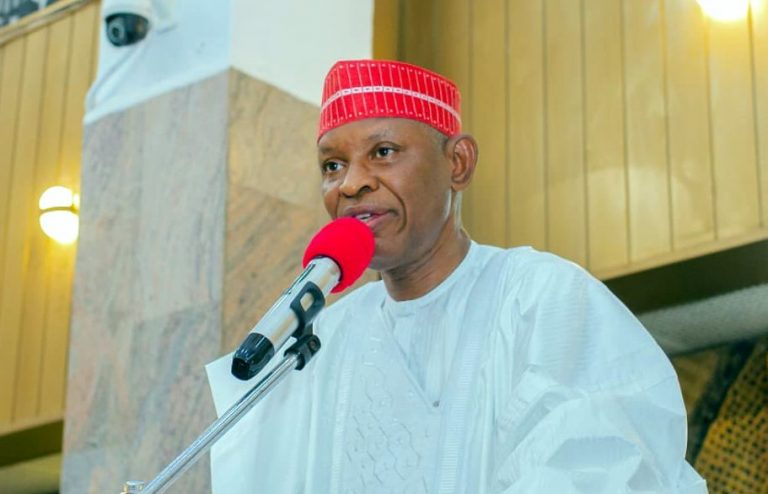
Studying the unfolding events within the government circle in the last couple of months after the emergence of the present administration of Governor Ademola Adeleke, it is crystal clear that nepotism and ethnocentrism have eaten deep into the fabric of government and art of governance in the state of the virtuous.
The reinvention of the concept of ‘Edenisation’ is too glaring to be ignored. It has been successfully resuscitated by the Adeleke-led government which has not only negated the common goal of the founding fathers of the state, but also decimated the gentleman-agreement of fairness, equality, equity and equitable distribution of resources between and among the people, their villages, towns and cities since the creation of the state.
We all remembered how Chief Adebisi Akande governed the state ditto former Governor Olagunsoye Oyinlola as well as Engr. Rauf Aregbesola and Alhaji Adegboyega Oyetola: we can count number of people appointed from their hometowns vis-a-vis the number of projects executed in their towns.
Chief Akande, whom we are praising for his prudence, accountability and transparency in governance and management of the meagre resources, built a lifetime edifice which is today our State Government Secretariat in Osogbo, the state capital.
If Akande was to be nepotistic and chauvinistic, probably the funds expended on the State Government Secretariat would have been used for something else, which may be directly beneficial to his immediate constituency in Ila.
His successor, Olagunsoye Oyinlola whose imprint is on the establishment of Osun State University, though with a satellite campus in his hometown, Okuku, would have situated the institution in his town without multiple campuses.
Similarly, the former Governor Rauf Aregbesola opened up the economy of the State, while his successor, Adegboyega Oyetola stabilised the economy and created channels for socioeconomic sustainability and prosperity as seen in his footprints in all sectors of the economy with great impacts in the lives of the people of the state and their respective domains. Like Akande and Oyinlola, Oyetola did situate the iconic Olaiya Flyover in Iragbiji neither did he take the doctor’s quarters and 120-bed ward to Boripe in his Local Government Area.
It is on record, that there was no significant case of lopsidedness, sectionalism or marginalisation in the scheme of things until recently.
It is also on record that Governor Adeleke has unequivocally made it clear to the people of the state, the self-serving agenda of Edenisation as being manifested in the skewed distribution of the common patrimony and accruable resources of the state in the last nine months of being in office.
The Executive Power no longer resides solely in the hands of the Governor but rather in the choice of the aristocrats which is at variant with the principles and practices of the creation of the state and how the state has been governed by the successive administrations.
The tireless efforts of the founding fathers and agitators for the creation of Osun from the Old Oyo state from 1950, which eventually manifested and was actualised on 27 August 1991 has been practically shattered by the effects of manifesting jingoism.
As a growing economy, the creation of Osun by the then Military Head of State, Major General Ibrahim Babangida, redefined the history of the people of the State and brought them to the limelight as a people and as an entity in the national and global outfits.
However, the successive administrations (both civilian and military) since the creation of the state have made several impacts — ‘tangible and intangible’ in different spheres of life and in various aspects of the economy to advance the collective cause of building a virile and healthy state through equitable distribution of resources.
Not until recently, the resources of the state had been fairly managed and equitably distributed between and among the citizens in their respective domains.
However, in the last nine months, the art of governance has changed in the state as the common patrimony has been apparently concentrated in the hands of power players and political gladiators within the cycle of the ruling party in the state.
Empirical assessment of the ongoing infrastructural developments shows clearly that the largest chunks were skewed to the hometown of the Governor and his federal constituency while other major cities, towns and their suburbs were at the mercy of government.
Civil service has been pocketed by the power-that-be to the extent that nothing works on goodwill or competence but through man-know-man syndrome that has pervaded the political space and permeated every aspect of the economy.
Appointment, hiring-and-firing of top civil servants and political appointees are now subjects of country home’s ratification, which can only be considered on affinity to the corridor of power while political appointments are lopsidedly tailored.
Aside the fact that the Chief of Staff to the Governor is from Ede, seven persons out of the Permanent Secretaries recently appointed are from Ede overseeing critical ministries; four Commissioners are indigenes of Ede assigning strategic ministries to administer such as works, special duties, federal affairs, science, technology and innovation as well as Finance.
Similarly, wife and son of late former Governor and elder brother to the incumbent Governor, Senator Isiaka Adetunji Adeleke were appointed as Commissioner and Chairman, Local Government Service Commission respectively.
In the same vein, several Ede indigenes were appointed as Chairmen of different Government Boards, Agencies, Parastatals, Heads of Institutions and the likes, since the inception of the current administration in the State.
A visit to the country home of the Governor vis-a-vis critical, and painstaking assessment of the government’s presence, will give accurate answers to some of the salient questions agitating minds of discerning citizens of the State.
What precedent is the current administration setting for the state? What legacy is it bequeathing? What future is it defining? What does the residents stand to benefit from the aristocratic policies? What is the fate of the electorate, majority of whom are rural dwellers?
It is safe to say that the era of nepotism has resurfaced under the present administration as manifested in its policies formulation and implementation in the last few months of coming to office.
Citizens are watching and analysts are gathering data. There was a penultimate government; there was a government yesterday and there is a government today. History beckons on past and present. When the time comes, we shall remind each other of some of these ugly developments.
May God Heal Our Land!
Advertisement






